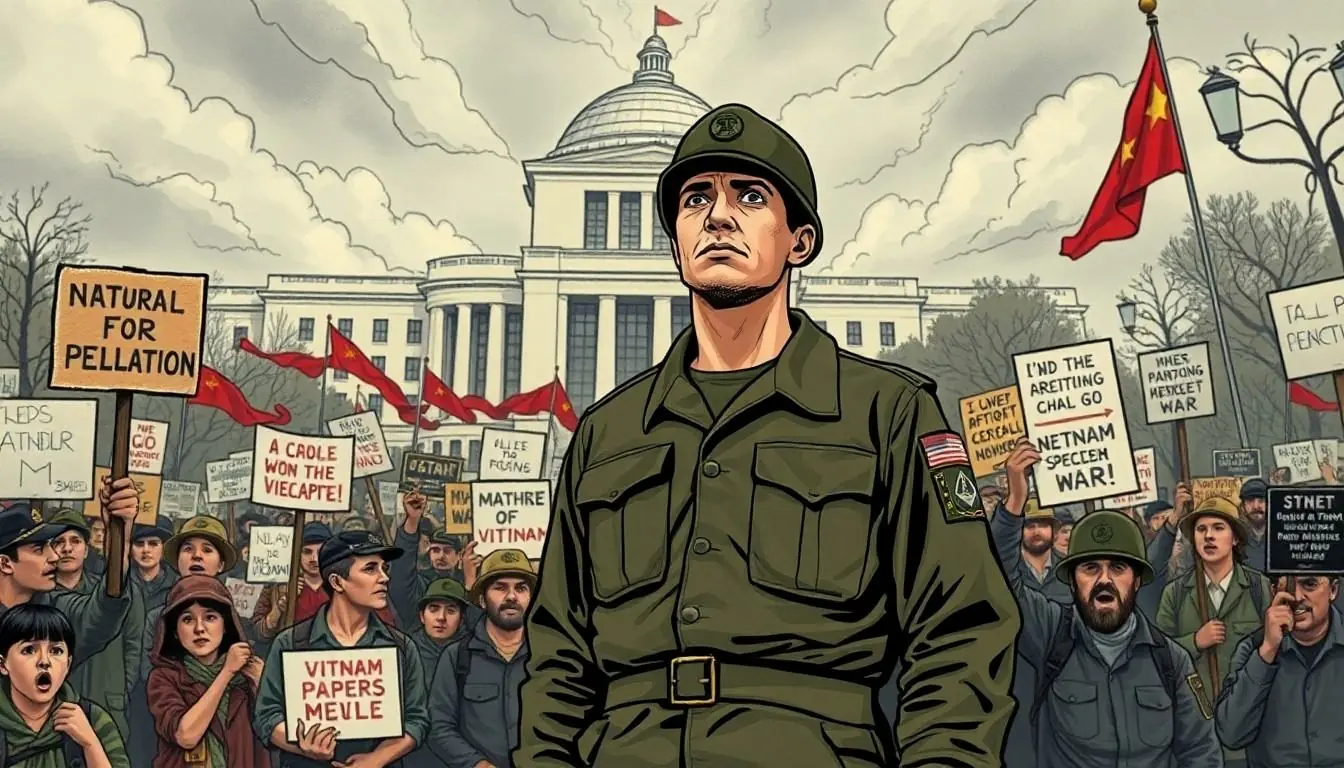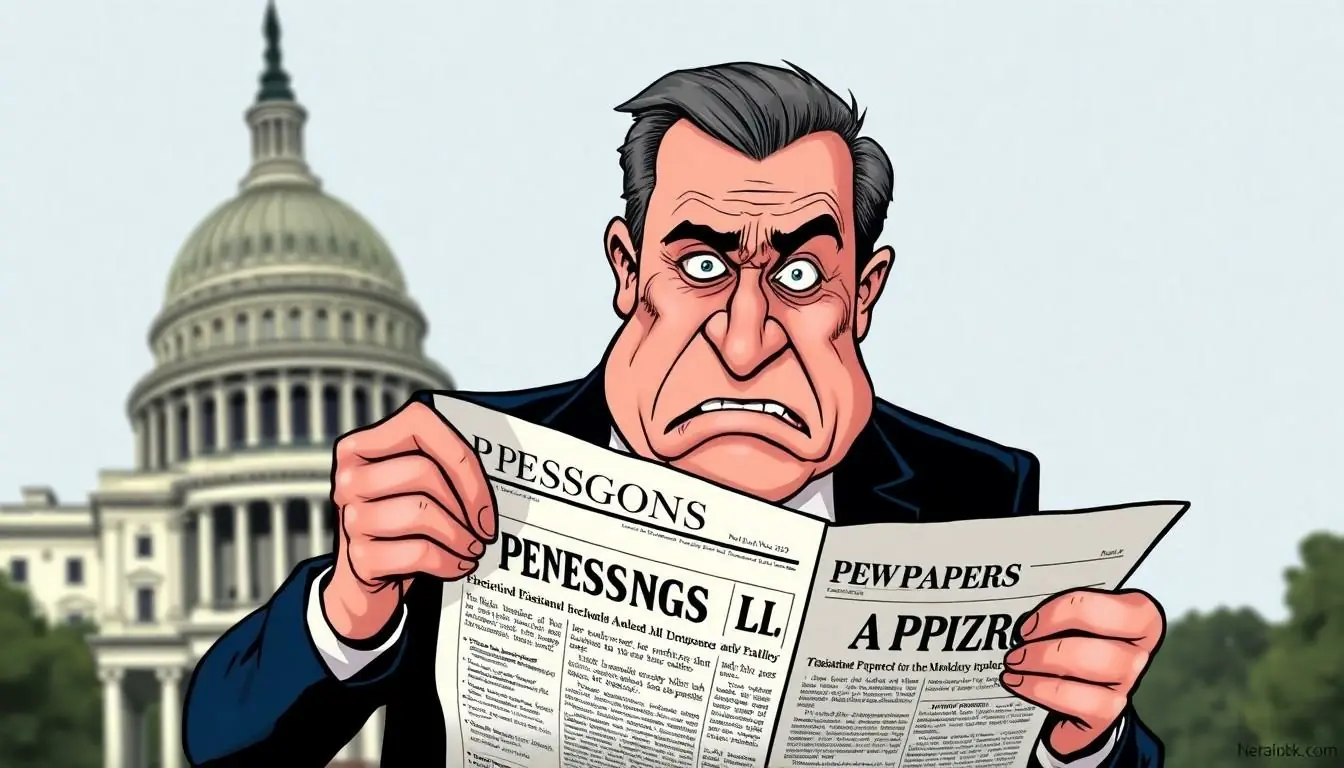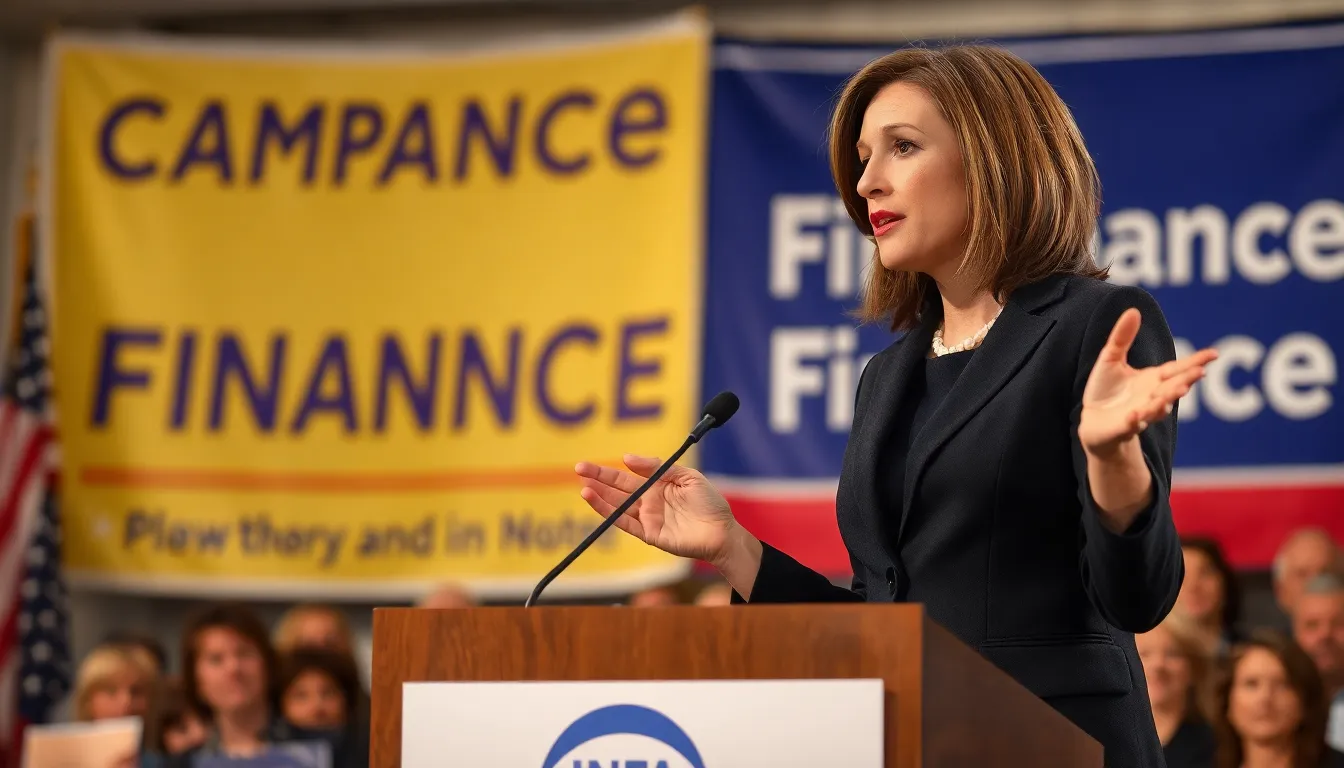In the realm of political commentary, few things pack a punch quite like a well-crafted political cartoon. The Pentagon Papers, a monumental leak that exposed government secrets about the Vietnam War, ignited not just outrage but also a flurry of artistic expression. Cartoonists took to their pens, transforming complex issues into biting satire that made people laugh while they thought.
These cartoons didn’t just entertain; they challenged the status quo and sparked conversations that echoed through the halls of power. With a clever mix of humor and insight, they captured the absurdity of the situation, reminding us that sometimes, laughter is the best way to confront serious issues. Dive into the world of Pentagon Papers political cartoons and discover how these artists wielded their pens as weapons of truth, turning the tide of public opinion one chuckle at a time.
Table of Contents
ToggleOverview of the Pentagon Papers
The Pentagon Papers consist of a classified Department of Defense report released in 1971. This document exposed the United States government’s political and military involvement in Vietnam from 1945 to 1967. By detailing decisions made by successive administrations, the papers illustrated a pattern of deception regarding the Vietnam War’s escalation.
The Pentagon Papers confirmed widespread suspicions among the public about the government’s credibility. It documented key events, including the Gulf of Tonkin incident, which was pivotal in escalating military action. Secrets surrounding the war efforts contributed to growing distrust in the government as Americans learned the disparity between official statements and the reality of the situation.
When released by The New York Times, the papers sparked significant public debate and legal battles. The Nixon administration attempted to prevent publication, claiming national security concerns. However, the Supreme Court ruled in favor of the press, reinforcing the principles of free speech and transparency.
Political cartoons emerged as an important cultural response to the revelations in the Pentagon Papers. Artists utilized humor and satire to critique government decisions, engaging the public in discussions about war and accountability. These illustrations captured the sentiment of an increasingly skeptical society, highlighting the role of media in shaping perceptions.
Significantly, the Pentagon Papers reshaped American political landscape by influencing public opinion on government transparency. Historical analyses often cite this event as a catalyst for greater scrutiny in U.S. foreign policy decisions. Through various forms of media, including political cartoons, the legacy of the Pentagon Papers continues to resonate, demonstrating the critical importance of accountability in governance.
Historical Context of the Pentagon Papers

The Pentagon Papers exposed significant truths about U.S. involvement in Vietnam, altering public perception of the government. This report’s release not only shocked the nation but also underscored the importance of transparency.
The Vietnam War and Its Impact
Vietnam saw extensive U.S. military involvement, with over 2.7 million Americans serving between 1964 and 1973. Trust diminished as citizens learned about misleading government narratives regarding escalating troop levels and civilian casualties. The release of the Pentagon Papers highlighted the disconnection between public policy and reality, fueling protests across the nation. Activism surged, with anti-war movements evolving into a vital force in American society. Many viewed this conflict as a moral quagmire, illustrating the human cost behind political decisions.
The Role of the Media
The media played a crucial part in unveiling the Pentagon Papers. Major outlets like The New York Times and The Washington Post tackled the story head-on, emphasizing the public’s right to know. Censorship efforts by the Nixon administration sparked debates about free press versus national security, leading to landmark Supreme Court decisions. Journalists equipped themselves with critical documents that revealed systematic deception by the government. Media coverage ignited widespread conversation, encouraging citizens to question the motivations behind U.S. actions in Vietnam. This scrutiny forged a new era of investigative journalism, demonstrating its role as a watchdog.
Political Cartoons as a Form of Expression
Political cartoons serve as a potent tool for commentary and critique, especially regarding significant events like the Pentagon Papers. Artists employ various techniques to convey messages effectively.
Techniques Used in Political Cartoons
Satire forms the backbone of many political cartoons, allowing cartoonists to provoke thought through humor. Exaggeration emphasizes key features of politicians or events, making their point visually striking. Symbolism aids in distilling complex ideas into recognizable images. For example, an eagle might represent American freedom, while a puppet could symbolize manipulation by government authorities. Visual metaphors bridge the gap between abstract concepts and everyday understanding, ensuring the audience engages with serious topics.
Historical Significance of Political Cartoons
Political cartoons possess historical importance, often reflecting the mood of the public during key moments. In the wake of the Pentagon Papers, these illustrations helped shape public perception of government accountability. During the Vietnam War, they provided a visible voice for dissent, capturing the frustrations of a populace grappling with trust issues. Iconic works sparked conversations about freedom of press and expression, reinforcing their role in democratic society. Over time, political cartoons have chronicled the evolving political landscape, serving as a historical record artists draw on to critique ongoing issues.
Analysis of a Notable Pentagon Papers Political Cartoon
Political cartoons serve as powerful commentary on the Pentagon Papers, highlighting themes of deception and accountability. These illustrations convey deep concerns regarding government transparency, specifically addressing the misinformation surrounding the Vietnam War. The discussions within these cartoons encourage critical thinking about the relationship between authority and the public.
Themes and Messages
Deception emerges as a central theme in many political cartoons focused on the Pentagon Papers. They reflect anger and disillusionment among citizens regarding government credibility. Accountability resonates throughout the artwork, urging leaders to face the consequences of their actions. Mistrust toward the establishment further fuels these messages, illustrating how public confidence eroded in light of the exposed truths. War’s profound impacts on American society also feature prominently, drawing attention to the human cost of political decisions.
Artistic Style and Techniques
Cartoonists employ numerous artistic styles and techniques to communicate their messages effectively. Satire serves as a primary tool, offering criticism of government decisions through humor. Exaggeration adds depth, amplifying the absurdity of political narratives and inviting the audience to reflect. Symbolism enriches the imagery, often introducing recognizable icons to strengthen the message. Furthermore, visuals often combine text and images, making complex topics accessible to a broader audience. Each technique enhances the cartoon’s ability to provoke thought, engage viewers, and stimulate discussion about accountability during a tumultuous era.
Political cartoons have played a vital role in shaping public discourse around the Pentagon Papers and the Vietnam War. Through clever satire and poignant symbolism, cartoonists have not only entertained but also provoked critical thought about government actions. These visual commentaries reflect the deep-seated anger and disillusionment felt by many Americans during this turbulent time.
As the legacy of the Pentagon Papers continues to influence discussions about transparency and accountability, political cartoons remain an essential medium for expressing dissent and challenging authority. They remind us of the importance of questioning narratives and holding leaders accountable for their decisions. In a world where information is often manipulated, the power of political cartoons endures as a tool for fostering awareness and encouraging civic engagement.



